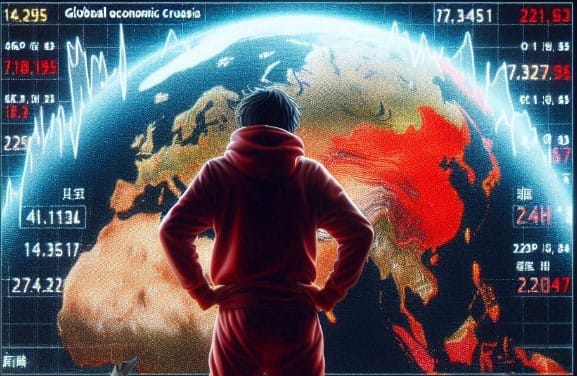Amid slowing growth and low investor confidence, the Central Bank of China (PBOC) announced the implementation of one of the largest stimulus packages since the start of the Covid pandemic in 2020. Unlike Western countries, its main objective is to counter deflation.
As reported by PBOC Governor Pan Gongsheng, the goal is to bring annual economic growth to a target of around 5%. To do so, advertisement a reduction in key short-term interest rates and unveiled plans to lower banks’ reserve requirements to the lowest level since 2018.
This means that interest rates are cut by 50 basis points. This adjustment will allow banks to have more capital available to lend, releasing around $142.2 billion
Although not specified The exact date of the cut was not yet known, Gongsheng said. He said there could be another cut of between 0.25 and 0.5 basis points before the end of this year, depending on market liquidity and economic conditions.
The People’s Bank of China will also ensure that commercial institutions reduce interest rates on existing mortgages by an average of 0.5 percentage points, in a bid to ease the pressure on households.
The minimum down payment rate for second-home buyers nationwide will also be reduced to 15%, down from the current 25%.
This entire economic package applies as a way to revitalize the Chinese economyoffering more liquidity and encouraging growth. The idea is to get economic growth back on track, affected by a slowdown in the real estate sector and low consumer confidence. A situation that many economists are concerned about. They were asking for more incentivesespecially at the tax level.
China is thus seeking to halt the slowdown of its economy, a trend that has been constant since 2022after having announced a recovery following the crisis caused by the Covid pandemic.
For two years in a row, the inflation rate in the world’s second-largest economy has been falling, industrial prices have collapsed and retail sales have declined. This has set off alarm bells. due to the risks arising from these deflationary pressuresboth nationally and internationally.

In this sense, although deflation may seem positive – due to its contrast with the price increases generated by inflation – it is a harmful phenomenon for an economy, as it generates a reduction in spending and investment. It usually results in low economic growth and fewer profits for companies, causing low wages, unemployment, and difficulties for people to meet their debts.
Fears of a global crisis are growing
Some analysts noted the absence of policies aimed at supporting real economic activity and They questioned the possibilities of progress of the Chinese economy with central bank liquidity injections, given extremely weak credit demand from businesses and consumers.
“The package alone may not be enough,” Capital Economics analyst Julian Evans-Pritchard told Reuters, believing further fiscal stimulus may be needed to get growth back on track towards the official target of around 5%.
Thus, it seems clear that China’s situation is as delicate as the one facing the United StatesAlthough the rate cut announced last week could be interpreted as a positive sign, fears of a recession and the return of inflation persist.
It is thus feared that the “mediocre” internal situation of the Asian giant disrupt the economies of other countriesalso affected by growth problems. As analysts at the Washington Post explain, cheap Chinese exports continue to undercut local producers, artificially reducing prices elsewhere (exporting deflation).
“The concern for the United States is that weaker Chinese domestic demand will mean more Chinese exports to the rest of the world,” They affirm Some economists, concerned about the consequences of the strategy outlined by the Chinese, driven by an export boom as a way out of its internal declineThis, even as escalating trade tensions with the United States and Europe undermine its ability to sell some of its most valuable products abroad.
It is a critical situation that adds to the weaknesses already present in other countries. As CriptoNoticias has reported, the risks of a global economic slowdown are also increasing. as the monetary policies applied affect the performance of fiat currenciesinvestors are becoming increasingly cautious and markets are falling due to fear of a contraction.






Leave a Reply